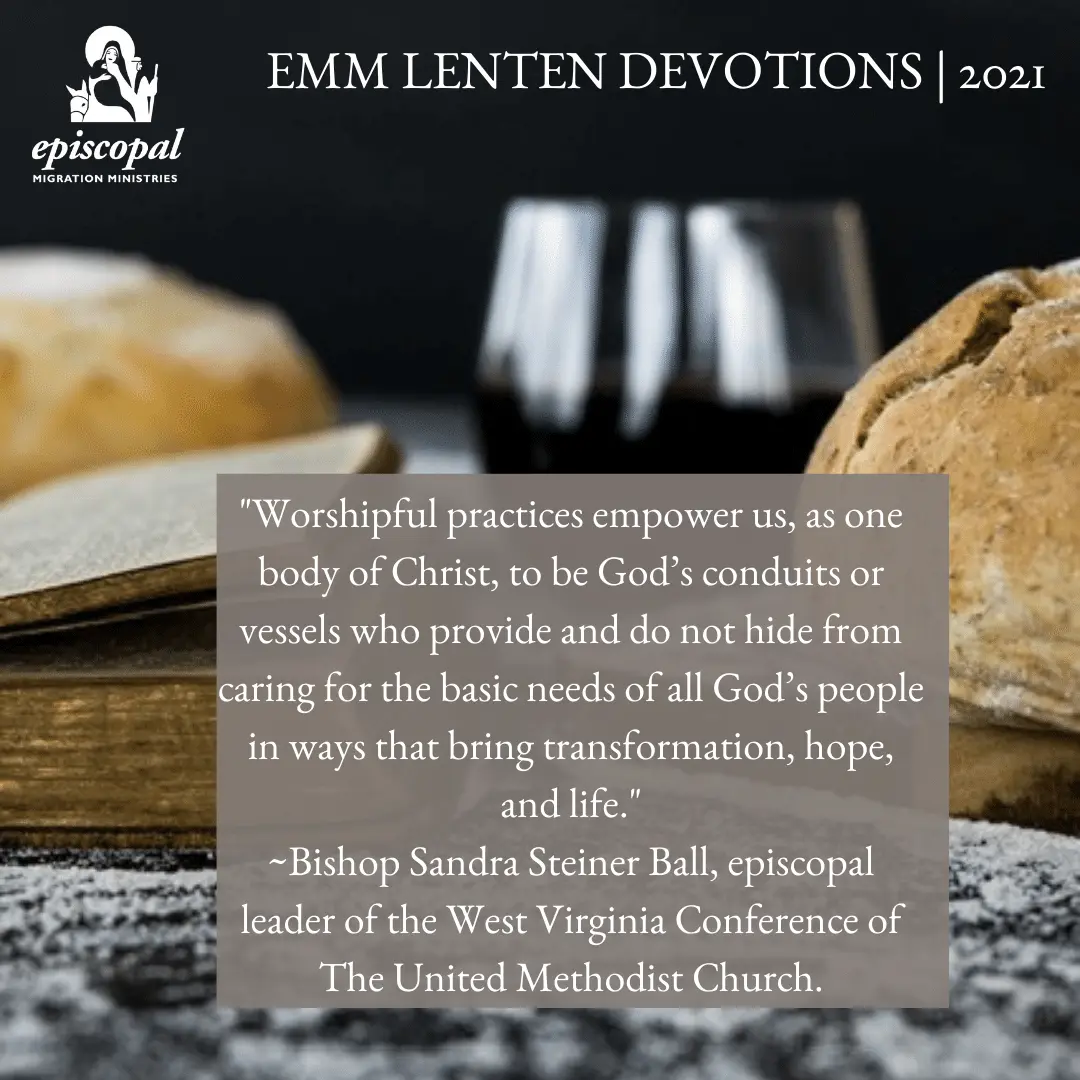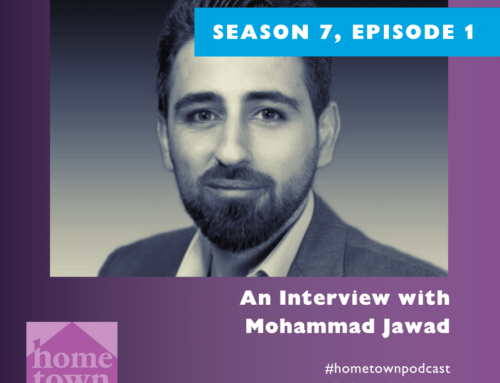Isaiah 58:7
with the hungry…
Reflection By Bishop Sandra Steiner Ball
The difference between false and true worship and the purpose of fasting is the context for the question posed in Isaiah 58:7. The question invites us to stop, to realize that this journey of life and faith should not be centered on me! If our approach to worship or the spiritual discipline of fasting advances our own self-interest, instead of working to draw us closer to God and to open our hearts, minds, and spirits to the cries of God’s people, then it is not true worship.
True worship is not about me, it is about hungering after God. It is about the action of all of us created in God’s image being re-membered with God and one another – to be one with Christ, one with each other and one in ministry to all the world. Worshipful actions are about the pulling together of God’s kin-dom, responding with celebration to the provisions with which God blesses us – life, love, sustenance, healing, forgiveness, redemption. Worship is the action of thanksgiving and growing into disciples who realize that these blessings with which God provides us are not to be hoarded for our self-preservation or advancement but are to be given again by us in God’s name. Worshipful practices empower us, as one body of Christ, to be God’s conduits or vessels who provide and do not hide from caring for the basic needs of all God’s people in ways that bring transformation, hope, and life.
True worship is about hungering with one another after God’s ways and actions. It is about fasting from activities and self-centered belief systems that pull us away from sharing with, sheltering, clothing, and healing all those who, like us have been created in God’s image. True worship then, invites us on a journey that welcomes more and more persons to be a part of God’s engagement with this world where we share our physical and spiritual bread with the hungry, shelter the homeless, clothe the naked, and seek together not to hide but to expose ourselves as brothers and sisters who humbly multiply the blessing and provision of God, not just in particular places or with particular people, but in every place and with every person.
Reflection Questions:
From what do you need to fast to more effectively minister with those who hunger spiritually and physically?
Whose cries cause you to hide yourself? What or who could help you step out from your hiding place?
What actions or words create barriers between those giving and those receiving the provisions God provides to this world for all God’s people? What can you do to dismantle barriers and build trust?
****
Bishop Sandra Steiner Ball is the episcopal leader of the West Virginia Conference of The United Methodist Church.





